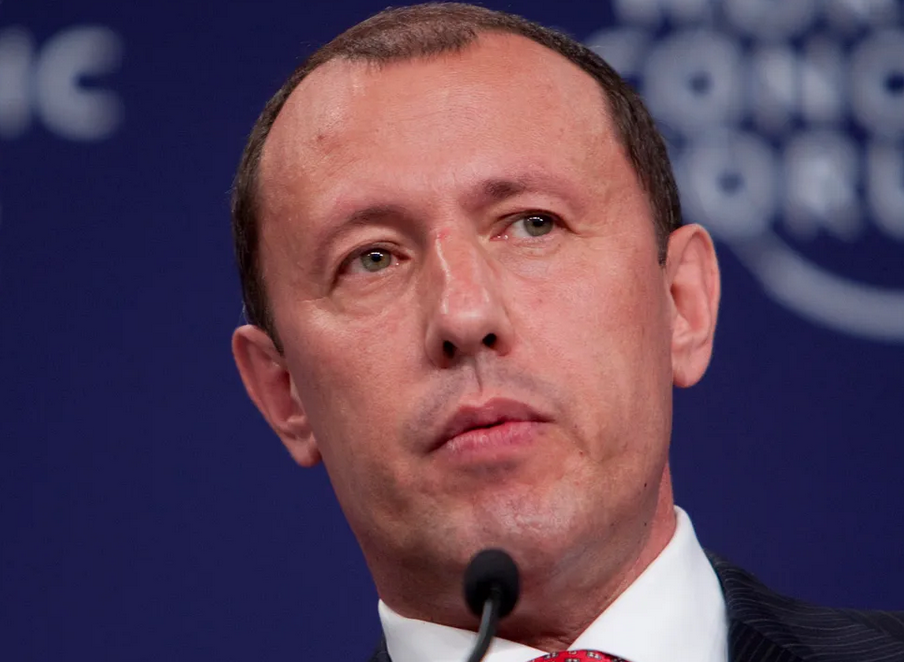Jahangir Hajiyev, the former chairman of the International Bank of Azerbaijan (IBA), has become a symbol of high-level financial crime in the Caucasus. His conviction on charges of fraud, embezzlement, and money laundering has highlighted significant issues within the region’s financial and regulatory systems.
The Crime
From 2001 to 2015, Jahangir Hajiyev presided over the IBA, transforming it into Azerbaijan’s largest financial institution. However, behind the scenes, Hajiyev orchestrated a sophisticated scheme to siphon off millions of dollars. The fraudulent activities involved granting large, unsecured loans to various shell companies, which were fronts set up to facilitate the diversion of funds into offshore accounts controlled by Hajiyev and his associates.
These funds were not used for legitimate business purposes but instead financed a life of luxury for Hajiyev. The investigation revealed he had acquired high-end real estate in London, expensive cars, and funded extravagant personal expenditures. The extent of the embezzlement was such that it left the IBA in financial disarray, necessitating a state intervention to prevent its collapse.
The Investigation
The unraveling of Hajiyev’s financial machinations began shortly after his resignation from the IBA in 2015. In March 2016, Azerbaijani authorities arrested him, and subsequent investigations brought to light the full scale of his fraudulent activities. Investigators traced the flow of funds through a complex network of transactions that crossed multiple international jurisdictions, highlighting the global reach of Hajiyev’s operations.
Key to the investigation was the cooperation between Azerbaijani authorities and international law enforcement agencies. This collaboration was crucial in tracking the offshore accounts and shell companies involved, eventually leading to a comprehensive understanding of Hajiyev’s schemes.
The Impact
The economic fallout from Hajiyev’s actions was severe. The International Bank of Azerbaijan, once a cornerstone of the nation’s banking sector, found itself on the brink of insolvency. The Azerbaijani government had to step in with a multi-billion-dollar bailout to stabilize the bank, a move that had significant implications for the national budget and economy.
Public trust in the financial sector was also deeply shaken. The revelation that such high-level corruption had gone unchecked for years underscored systemic weaknesses in regulatory oversight. For ordinary citizens, the scandal was a stark reminder of the disparity between the elites and the general populace, particularly when public funds were used to rectify the damages caused by Hajiyev’s actions.

High-Profile Beneficiaries
Hajiyev’s fraudulent schemes did not only benefit him directly. Several high-profile individuals in Azerbaijan were recipients of these unsecured loans. These included influential business figures and political elites who used their connections with Hajiyev to access substantial financial resources with little to no oversight.
One notable recipient was Hajiyev’s brother-in-law, Ilham Aliyev (not to be confused with the President of Azerbaijan), who received large loans purportedly for business ventures that never materialized. Another key figure was businessman Hafiz Mammadov, known for his investments in football clubs in Azerbaijan and Europe, who benefited from loans that were never repaid.
The involvement of such high-profile individuals further complicated the investigation and underscored the extent of the corruption network Hajiyev had fostered. These beneficiaries used the funds to bolster their own business interests, often at the expense of the IBA’s financial health.
Legal Proceedings
In October 2016, Jahangir Hajiyev was convicted on multiple charges, including fraud, embezzlement, and money laundering. He was sentenced to 15 years in prison, marking one of the most significant convictions for financial crime in Azerbaijan’s history. Several of his associates also faced charges, though the full network of individuals involved in the scheme is believed to be extensive.
The legal proceedings against Hajiyev were closely watched, both domestically and internationally. His conviction was seen as a pivotal moment in Azerbaijan’s efforts to combat high-level corruption, although it also highlighted the challenges in prosecuting such crimes, given the sophisticated means employed by Hajiyev and his network.
Broader Implications
Hajiyev’s case is indicative of a broader problem of corruption within the Caucasus. Despite his conviction, many similar cases of financial malfeasance often remain unpunished, contributing to a culture of impunity among the elite. The financial instability caused by such high-level corruption has far-reaching implications, hindering economic development and eroding public confidence in institutions.
The case also underscores the importance of international cooperation in addressing financial crimes. The global nature of Hajiyev’s schemes meant that no single country could effectively tackle the problem alone. The coordinated efforts of multiple nations’ law enforcement agencies were instrumental in bringing Hajiyev to justice.
Conclusion
Jahangir Hajiyev’s conviction marks a significant chapter in the fight against financial crime in the Caucasus. His actions as head of the International Bank of Azerbaijan highlight the risks posed by unchecked power and the extensive damage that can result from high-level corruption. While his sentencing represents a measure of accountability, the broader issues of systemic corruption and the need for vigilan

